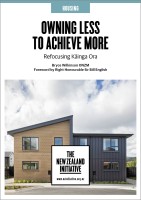
Newstalk ZB: Mike Hosking discusses our new report on Kāinga Ora's costs with Sir Bill English
Mike Hosking discussedour new report on Newstalk ZB with Rt Hon Sir Bill English, who contributed the foreword to the report, which finds that Kāinga Ora's 77,000 homes cost taxpayers twice as much as the private sector and advocates for greater tenant choice of landlord. Sir Bill, who previously led the independent review of Kāinga Ora, explained that smaller-scale housing providers of around 5,000 homes demonstrate better economies of scale and tenant outcomes than Kāinga Ora's centralised model. Read more













